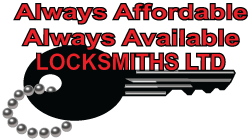7th Jan 2018
5 Home Security Tips to Protect Your Family

All your home security and protective measures should satisfy the need of protecting your family and your valuable possessions. The major principle is to hinder any criminal intentions and should the worst happen, to delay criminals from getting into your house.
‘Time is and always will be your principal means of defence. The more time the criminal takes in trying to gain access into your home or business, the greater the chance of the offender being caught.'
Here are 5 home security tips to protect your family:
1. Locksmith and Security Hardware
It is important to check and reassess your locking hardware especially if you are leaving for a period of time during the holiday. Majority of locks have a pre-determined lifespan, it is better to be safe than sorry and ensure all your locksmithing and security hardware are functioning properly. High-quality locks and other security systems will increase the time taken for an offender to break into your home or business.
By upgrading your locking hardware you can be sure that any would-be burglar will struggle, creating an excessive amount of noise in order to gain entry and also prevent an easy exit. Make it hard for them - do not keep any spare key under the doormat, in the mailbox or anywhere around your house. The Bolt Buddy is a great product that helps prevent kick in attacks which is still the most common entry of today's burglars.
2. External Housekeeping
The surrounding of your house is one of the many factors that a burglar would keep an eye on before choosing a place to break into. Control your property's entrance and exit access (including side gates) by limiting the number of entry points and securing them with the appropriate locksmith and security hardware. Garage and outside sheds must be properly secured, avoid using them to store valuable items as they are often subject to intrusions.
You should also maintain good visibility of your property - establish a clear view of entrances to the main door, doorways, access paths, hiding spots below windows or house decorations. Keeping your place tidy means the property is well looked-after, it is very effective in deterring potential intruders.
3. Internal Housekeeping
For new homeowners, it is advisable to have all external locks rekeyed or replaced. The same measure should be taken if you have lost/misplaced a key, or had tenants from your rental moved out without returning their keys.
Having a high-security keying system will provide an extra layer of security for your property and protect all your valuable assets. Make a list of individuals that hold/have access to the keys of your property - it is something obvious but often overlooked. By having the list, you have a reference to the people who have the keys to your property should anything happen.
If you are leaving your house for a period of time, try to cover up or move valuable items so they are not easily spotted from the window. Be careful when disposing of packaging boxes after you made big furniture purchases too - for example, big screen TVs, new cabinet set - leaving them outside signals that you have expensive items in the household.
For other valuable and expensive items such as jewellery, antiques, private documents and cash - store them in a secure safe. If you are investing in a safe, get professional advice from a qualified locksmith and obtain their service for a proper safe installation. Remember, the safe installation is just as important as the safe itself!
4. This is my Neighbourhood
A timeless approach - get to know your neighbours! Either they just moved in to the area or have lived there all their life, friendly and nice neighbours could be very valuable in securing your home and family. Check whether a "This is my Neighbourhood" is in your area. It is very helpful to be involved to improve the overall security of your community.
5. Snap Photos! Insurance & Documentation
If you have never done it before, you can start before you leave home for holiday this year. Identify and make a list of your belongings both at home and work, and be insured.
Take photos of your house (external and internal) as well as your belongings. For important items, document their details ranging from type, make, models, to serial numbers. After snapping photos, take videos of your belongings and property. A simple video describing the items would also help in any case of emergency. Keep extra soft copies of your photos, videos and documentation as a backup.
Having everything well-documented will provide you with a smooth process when dealing with insurance in the worst case scenario - it will also help you to have peace of mind.
